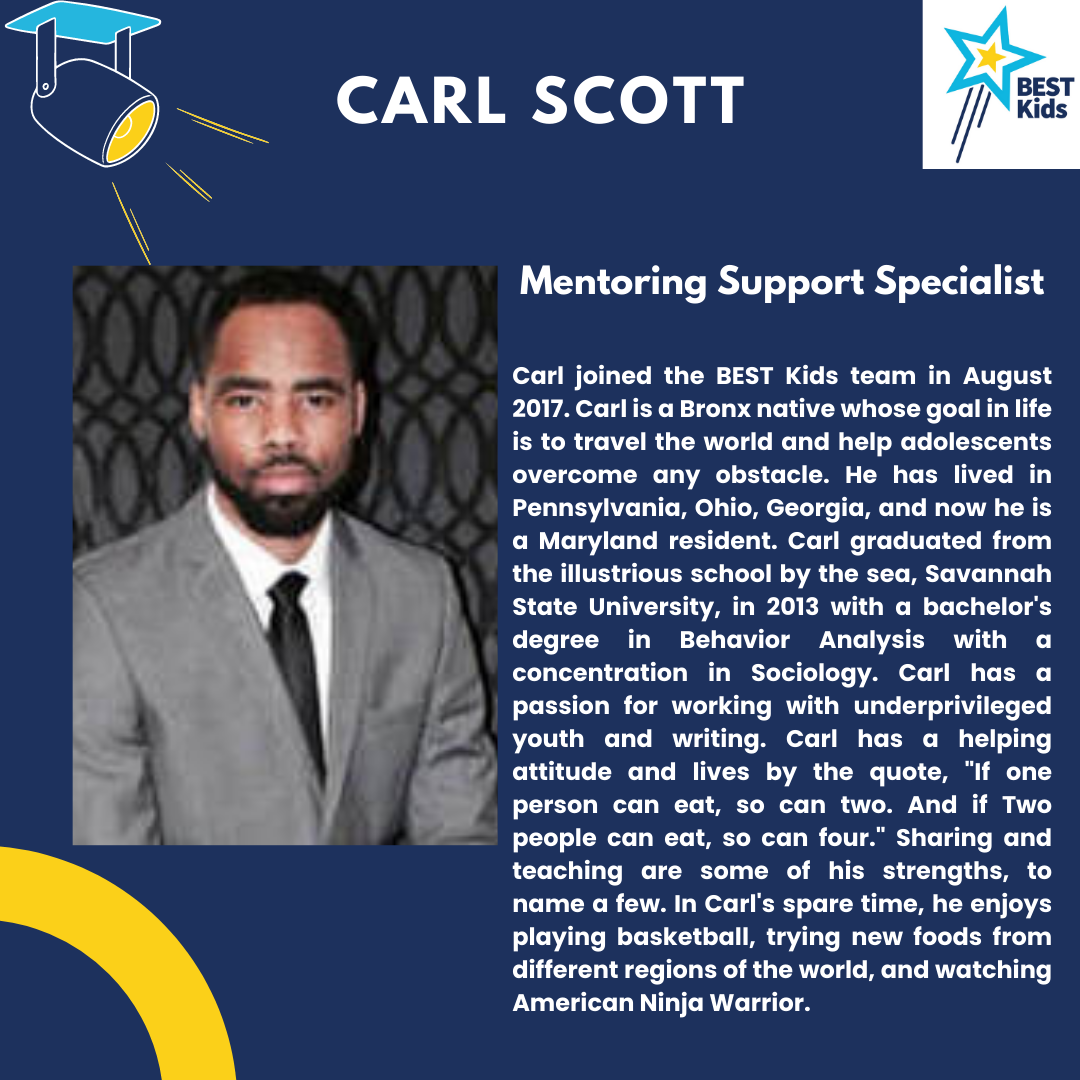Help your Mentee Express their Emotions When I first started with BEST Kids, I was the Youth Engagement Specialist. In this role, I was in charge of working with the male youth in the program who had yet to be matched. I served as their temporary mentor until we were able to provide them with their own permanent one. It was this effort, working one-on-one with mentees, that helped me cultivate my passion of supporting young boys transitioning into manhood.
Throughout that time I learned a few things that helped me get my mentees to open up to me - sharing how they felt about themselves and life in general. After transitioning over to the Mentoring Support Specialist position. I would hear things from mentors about how they have struggled with connecting with their mentee. I remember being asked “Do all youth in foster care have a difficult time sharing their feelings?” My response to that statement was or course not. Youth are humans just like adults. They all have the capacity to display a wide range of emotions. It just matters whether or not they trust you. Let me make this clear, youth that are in foster care are not always angry or sad. So if you have that expectation of them in your mind, I challenge you to get rid of that thought process. Here are a few steps I have adapted to connect with the mentees in the program: Draw parallels to movies or TV shows For many youth, movies and TV shows are one of the few venues in their lives where moments of interpersonal support and closeness are accepted. Concepts of emotional awareness are often key to successful relationships, and they can express empathy via insight gained through their own personal achievements or disappointments. This gives them an understanding of what their friends on the team may be feeling after a particularly rough day or experience. Nurture their curiosity Find opportunities to help your mentee reflect on the people around them that they care about. What do they like about them? What don’t they know but would like to know? Curiosity can be just as important in a friendship as empathy. Acknowledge the moments when they cry In your mentoring relationship with your mentee, allow them to cry in front of you, whether it is regarding a tough loss in their life or a friend said something hurtful, being there for them and willing to listen to what they have to say can be a big first step in getting them to talk about the underlying emotions. Help them recognize their friends’ boundaries It can seem like kids these days don’t interact with each other if they aren’t swapping friendly insults. This, though they may describe it as normal, can be an issue when someone pushes the envelope a little too far. Use these moments to explain that, if a friend seems to be upset or stops engaging, it may be time to cool it on the jokes. Give them an emotional vocabulary By expanding an emotional vocabulary, you are helping your mentee to better understand his feelings during particular events or exchanges. A good friend lets them borrow one of their games? That’s a demonstration of trust that he’ll take care of it and bring it back. Helping your mentee put names to these experiences can go a long way in helping them make sense of their own emotions and talk about them with others. Teach them to repair relationship rifts This one can be difficult, in that it may seem easier to just walk away from a difficult situation in a friendship. If your mentee is having friend troubles, talk to them about a time you had a difficult period with a close friend of yours. How did you resolve it and rebuild your relationship? You can help to set the blueprint for your mentee to follow. Adolescence and the teen years can be challenging and confusing for what seems like a million different reasons. By helping your mentee become more comfortable with their emotions and their connections to those around them, you can help to give them the tools they may need to experience healthy and happy friendships and relationships as they grow older.
0 Comments
|
About the BlogWelcome to the BEST Kids blog page! Archives
June 2022
Categories
All
|


 RSS Feed
RSS Feed
